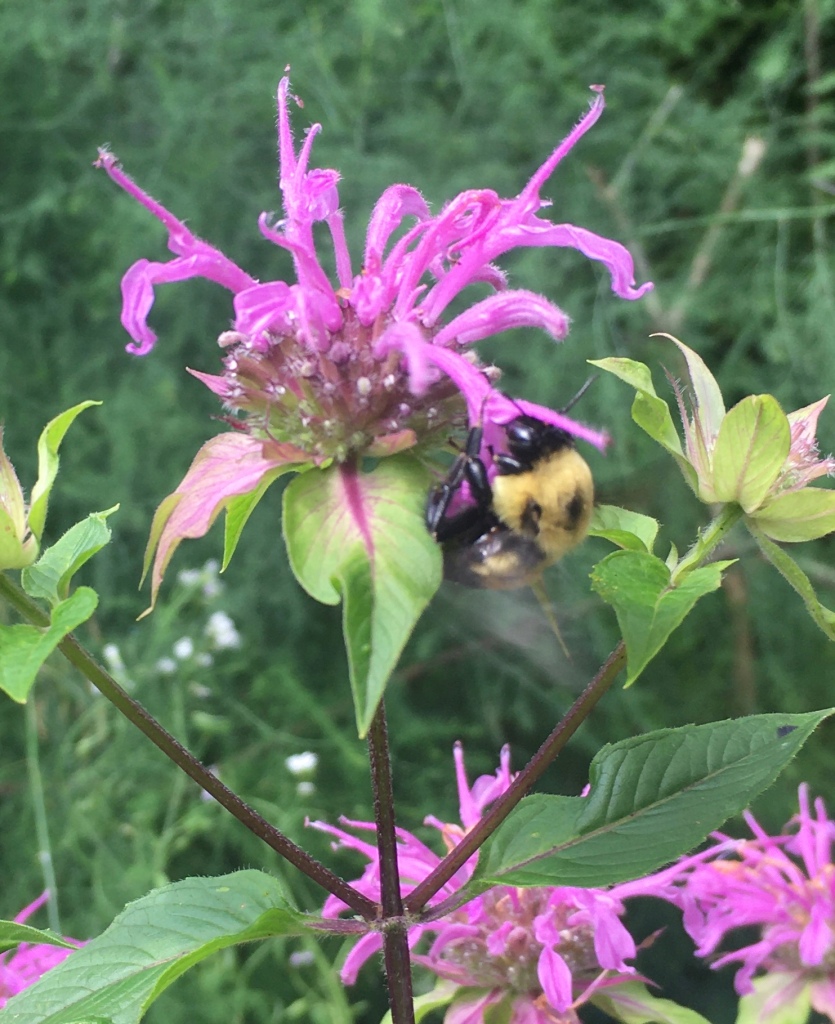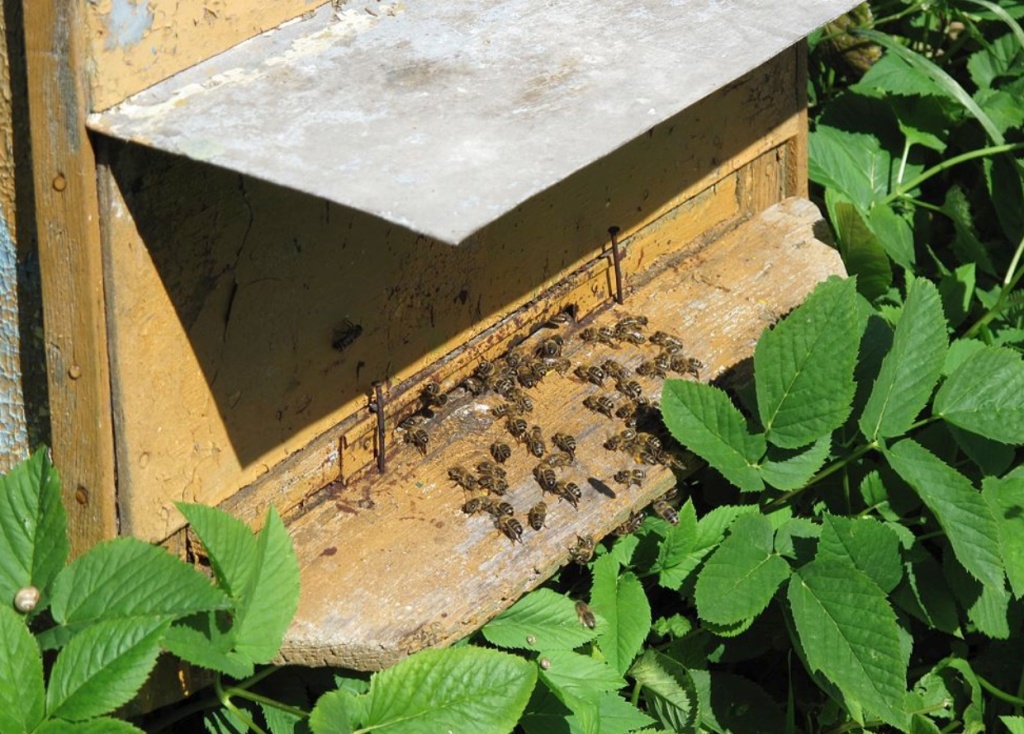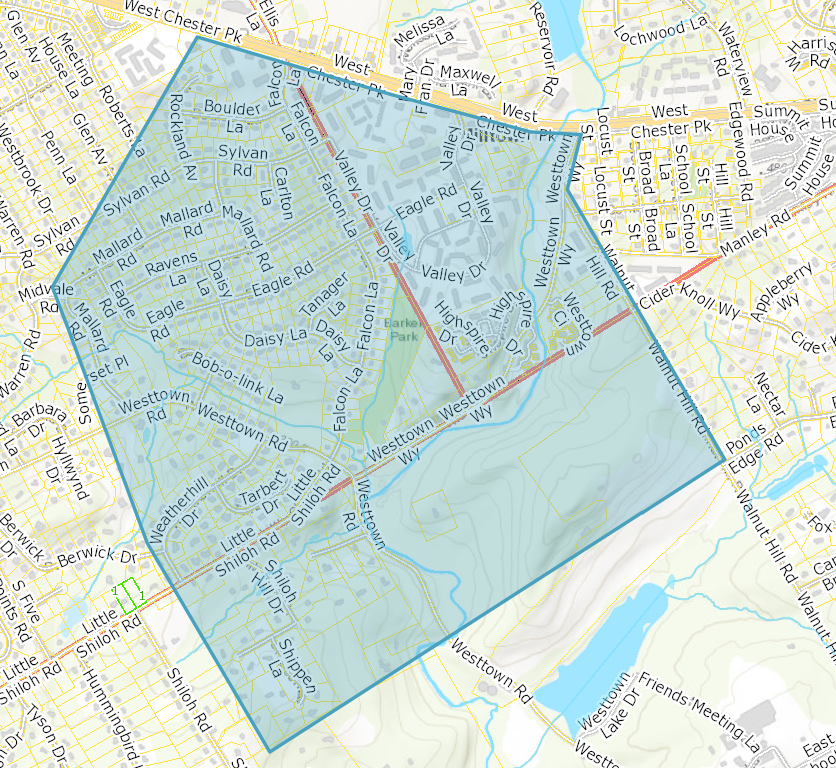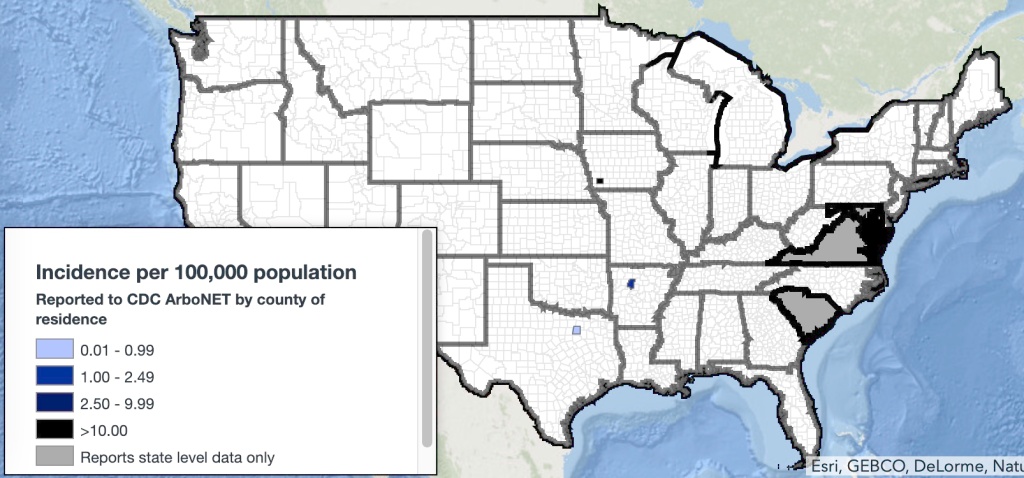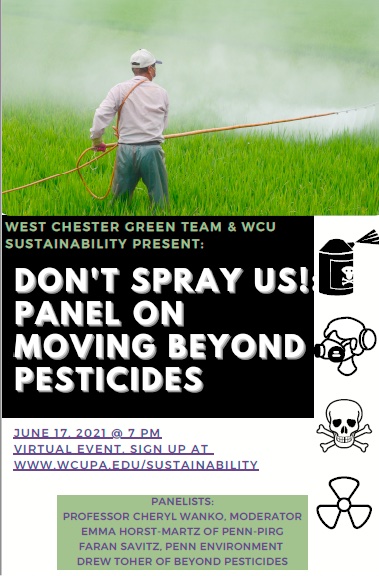by Alexa Manning at West Chester Green Team rally, June 12, 2021 (for prospective spray locations, see here)
Recently, it has come to our attention that the PA Dept of Agriculture plans to spray the active ingredient Bifenthrin (product name Talstar Professional Insecticide) for the spotted lantern fly (SLF) on thirteen locations in Chester County.
Bifenthrin is a broad-spectrum pyrethroid insecticide that kills insects indiscriminately, including beneficial insects such as bees and other pollinators. This pesticide was registered for use by the EPA in 1985, is in more than 600 products in the U.S. and is classified by the EPA as a possible carcinogen. It interferes with the nervous system of insects that eat it, touch it, or breathe it in. Bifenthrin binds to the soil and has the potential to contaminate surface waters through runoff. It is highly toxic to insects and aquatic organisms such as fish and arthropods. Though toxicity is lower to birds and mammals exposed directly to it, there are potential risks if they eat aquatic organisms because bifenthrin can accumulate in fish and last a long time in the environment.
Information provided to us from the PA Dept of Ag states that they and the USDA continue to support research into biological and other control methods for the SLF. They follow the principles of integrated pest management (IPM) using cultural, mechanical, biologic and targeted chemical treatment techniques available including implementing a quarantine to limit SLF spread, the use of traps, reduction of the favorite host Tree of Heaven, and application of a systemic insecticide to it. These efforts have slowed the spread of the SLF since it was discovered in Berks County in 2014; however, since then the SLF range has expanded significantly.
The decision was made to add this new contact spray into the IPM program this year. Spraying will occur between June and October on properties exhibiting a high risk of enabling long-distance spread of the insect and tend to be on habitats that are highly degraded such as near rail hubs, airports, and industrial centers, with the permission of the property owner/land manager. No set treatment dates are established yet. People listed on the Pesticide Hypersensitivity Registry and beekeepers will be notified in advance of spraying.
With the assistance of state representatives and their staff we are waiting to obtain more information from the Dept of Ag about the following questions about this spraying program.
• How far in advance will individuals on the Pesticide Hypersensitivity registry be notified? Will the public be notified in advance?
• What is the notification process and responsibilities of local, county, and state government and private property owners to the public regarding the spraying schedule in advance, at the time, and afterwards?
• Will public signs be posted and what are the other ways notification will take place?
• Who is paying for the spraying?
• Where and how were these specific locations identified and decided upon?
• Where else in PA is the spraying program happening?
• Is there a public comment period?
• What is the current research that states that a pesticide (and this specific one) will be effective in stopping the spread of SLF? If so, where and when did the research and any trials take place?
• If the spraying is targeted to specific locations, how will the effects be monitored and analyzed and for what length of time?
• Have the public and environmental health effects of spraying bifenthrin as well any other pesticides been documented and reported?
• In municipal locations, are schools and public property such as parks and open space affected? Which municipalities have approved this spraying?
These are some of the questions that need to be addressed by the government. Other concerns are welcome.
I would like to share that I am listed on the PA Pesticide Hypersensitivity Registry for health reasons. The law requires the people on the registry are to be notified by government and private entities of pesticide applications within 500 feet of one’s property at least one day in advance. In April 2020 we had the unfortunate experience when our entire property (we don’t use pesticides or fertilizers and grown organic plants for food and pollinators) was broadcast sprayed with a chemical mixture of pesticides and fertilizers by a chemical lawn service company. The employee who sprayed did not check the address and did not confirm with the customer next door where this service was contracted. I was not notified by the company in advance of the next-door neighbor’s spraying. Any of these measures could have prevented this from happening.
After I contacted the company and the Dept of Ag, the region Field Pesticide officer contacted me and investigated this incident. We received compensation from the company to rebuild vegetable raised beds, and some of the impacted treated soil in our pollinator gardens. There is the concern that there is pesticide residue in the soil. We would like to have a yard where what we grow and eat is healthy and safe. I hope this never happens again.
Since March, I have received 40 notifications from several chemical lawn treatment companies that regularly service residential properties near us. Unfortunately, there are other companies who have not notified me as is required by law. Then I follow up with them and the Dept of Ag.
Another concern is that companies who apply pesticides are not required by the state to post a sign that an area has been treated. This is only a courtesy. There are many times that I have walked near or on a border of a property that was recently sprayed as was the case when I walked across our front lawn the day we were sprayed in error. This is concerning for everyone, especially people on the registry, children and pets on public parks and private properties. This is the least that we can do: signs need to be posted on public property in advance with the time of application, the name of the pesticide and/or fertilizer, and when it is safe to go on the area.
Pennsylvania needs to allow local and country governments the right to enact and enforce ordinances and regulations to ban or restrict the use of pesticides and fertilizers. State preemption is antithetical to local rule and denies citizens their rights for the public good. This applies to many other issues.
These issues need to be addressed. Please contact your state representatives and the PA Dept of Agriculture now for answers to concerns about SLF spraying, notifications and related issues that prevent local and county governments from making direct decisions.
There are many harmful environmental and health concerns regarding the ubiquitous use of pesticides and fertilizers on land, air, and water in residential, agricultural, commercial and industrial locations. Since the 1950s their use is widespread and commonplace with tremendous ramifications to our health and safety. There are safe, proven alternatives and many resources available. This is a critical environmental issue that affects all of us. We need to take appropriate actions to protect our health and safety. Thank you for concern and for your advocacy.
